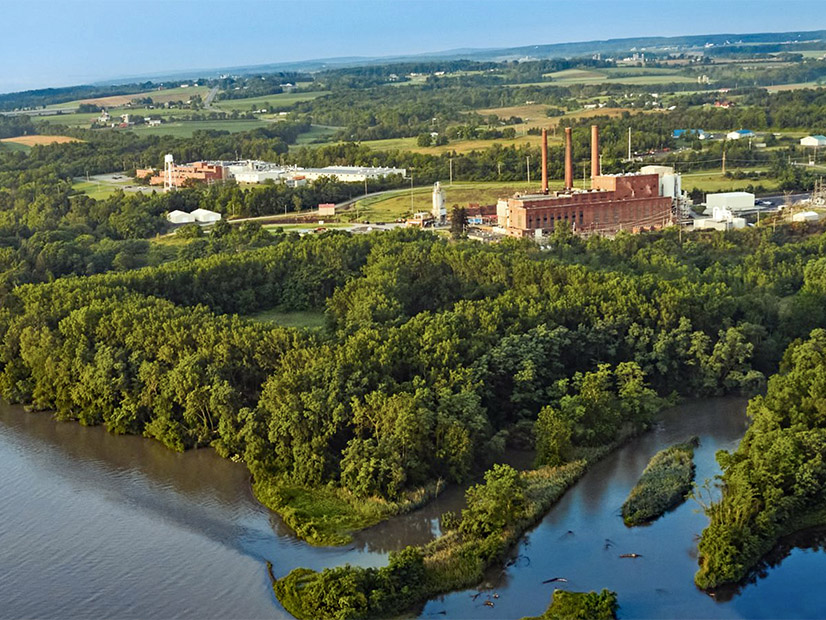
New York has imposed the nation’s first moratorium on permitting for certain new cryptocurrency mining operations.
The move drew criticism from business advocates and the digital currency industry but was applauded by environmental advocates concerned about the greenhouse gas emissions generated to feed the huge electrical demand of crypto mining.
Gov. Kathy Hochul signed the two-year moratorium into law Nov. 22, and it took effect immediately. It blocks approval or renewal of air emissions permits for carbon-fueled power plants that provide behind-the-meter electricity to operations that use proof-of-work authentication methods to validate blockchain transactions.
Existing operations and applications filed before Nov. 23, 2022, are not subject to the moratorium. Nor are those that rely on zero-emissions sources of electricity, such as New York’s abundant hydropower.
New York is widely regarded as one of the most expensive and highly regulated states in the nation. Its upstate region, where crypto mining operations have been established or proposed, has seen a decades-long loss of industry and population.
Hochul acknowledged this in her memorandum of approval.
“As the first Governor from Upstate New York in nearly a century, I recognize the importance of creating economic opportunity in communities that have been left behind,” she wrote.
She said the effort to support economic development and job creation upstate would continue but gave priority in this case to protecting communities from greenhouse gases and addressing the global climate crisis.
Crypto mining uses huge amounts of electricity.
Greenidge Generation Holdings (NASDAQ:GREE) in its 2021 10-K filing said its Dresden, N.Y., and Spartanburg, S.C., datacenters are rated at a combined 51 MW.
The Dresden facility has become a poster child or a flashpoint of sorts for the debate over the environmental impact of crypto mining. Its re-permitting process attracted nearly 4,000 public comments.
The circa-1937 plant sits on the west shore of the largest of the Finger Lakes, squarely in the middle of one of upstate New York’s most scenic and tourist-friendly regions.
It was coal-fired for most of its existence, but Greenidge converted it to natural gas and bought it back online at 106 MW in 2017, with a claimed 70% reduction in emissions. Greenidge says it is committed to carbon-neutral crypto mining by using low-carbon energy sources and offsetting its carbon footprint.
That’s not enough for climate activists, whose opposition is due not just to the emissions from burning natural gas but the environmental impact of extracting it with hydrofracking. New York has banned fracking, but it is in widespread use in Pennsylvania, 50 miles south of Dresden. The Marcellus Shale formation underlies the entire region.
Opponents cheered in June when the New York state Department of Environmental Conservation denied Greenidge’s application to renew its Title V permit for the Dresden plant on the grounds that it did not meet the requirements of the state’s Climate Leadership and Community Protection Act.
Greenidge decried the “arbitrary and capricious” decision and said DEC never once engaged it in discussion in the three months after it proposed an additional 40% reduction in greenhouse gas emissions at the Dresden plant.
The facility continues in operation while Greenidge appeals the denial.
But opponents are hoping that is only temporary.
Seneca Lake Guardian, one of the groups advocating for the moratorium on new crypto mining, called on Hochul to take the next step and shut down Dresden and similar facilities.
The group’s vice president, Yvonne Taylor, said in a prepared statement: “Thank you, Gov. Hochul, for stepping up to protect New Yorkers from corporate bullies who want to exploit communities like mine in the Finger Lakes … Gov. Hochul did the right thing by putting real New Yorkers over the failing outside speculators who choose not to mine crypto in more efficient ways that don’t destroy the climate, environment, and local economies.”
The environmental group Earthjustice said it hoped New York’s moratorium would be a precedent for the rest of the nation, as “crypto mining is a major threat to climate security and needs to be closely regulated.”
Others have supported the Dresden operation as a high-tech infusion of good new jobs and new property tax revenue in a region that is often lacking in both.
“The Business Council does not believe the legislature should seek to categorically limit the growth and expansion of any business or sector in New York,” said Heather Briccetti Mulligan, CEO of the Business Council of New York State. “We plan to further engage and help educate them regarding this industry and the benefits it provides to the local, regional, and state economy.”
And the digital community was aggrieved.
“We are severely disappointed in Gov. Hochul’s decision to approve a moratorium on digital asset mining operations that use proof-of-work (PoW) authentication methods to validate blockchain transactions,” the Chamber of Digital Commerce said. “To date, no other industry in the state has been sidelined like this for its energy usage. This is a dangerous precedent to set in determining who may or may not use power. The PoW mining industry has been spurring economic growth, job creation, and inclusion for historically underrepresented populations in New York, while also creating financial incentives for the buildout of renewable energy infrastructure.”



